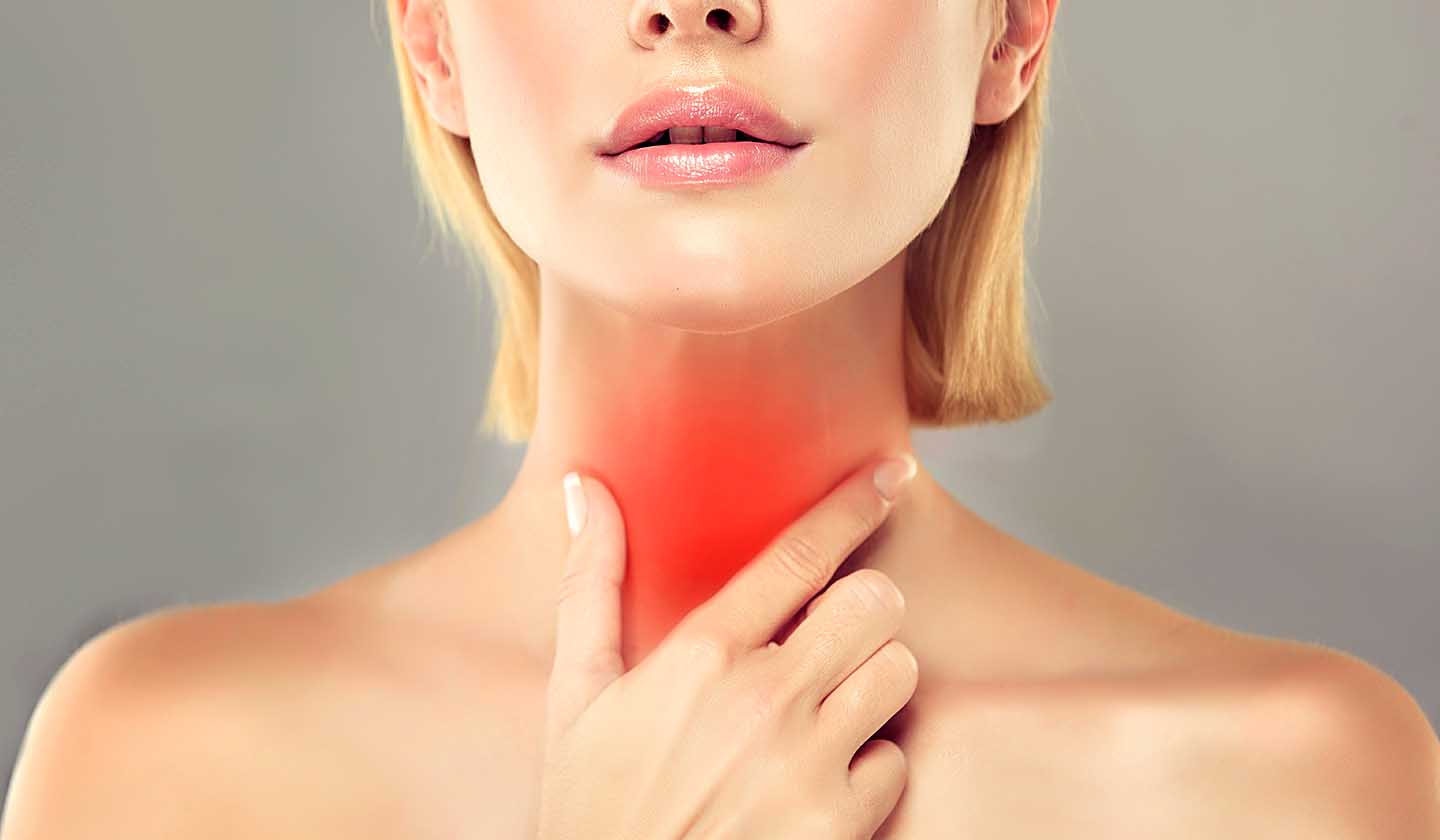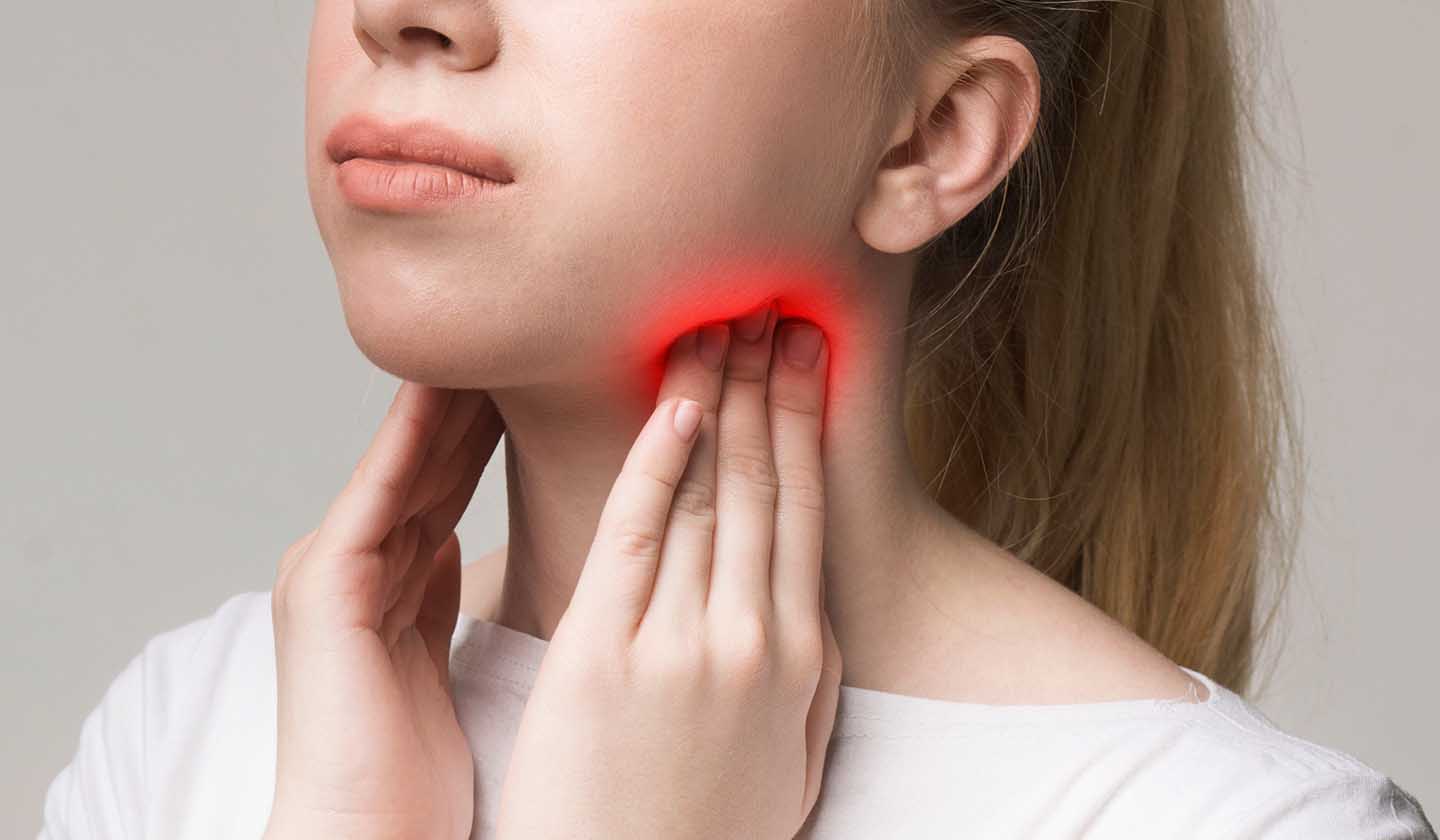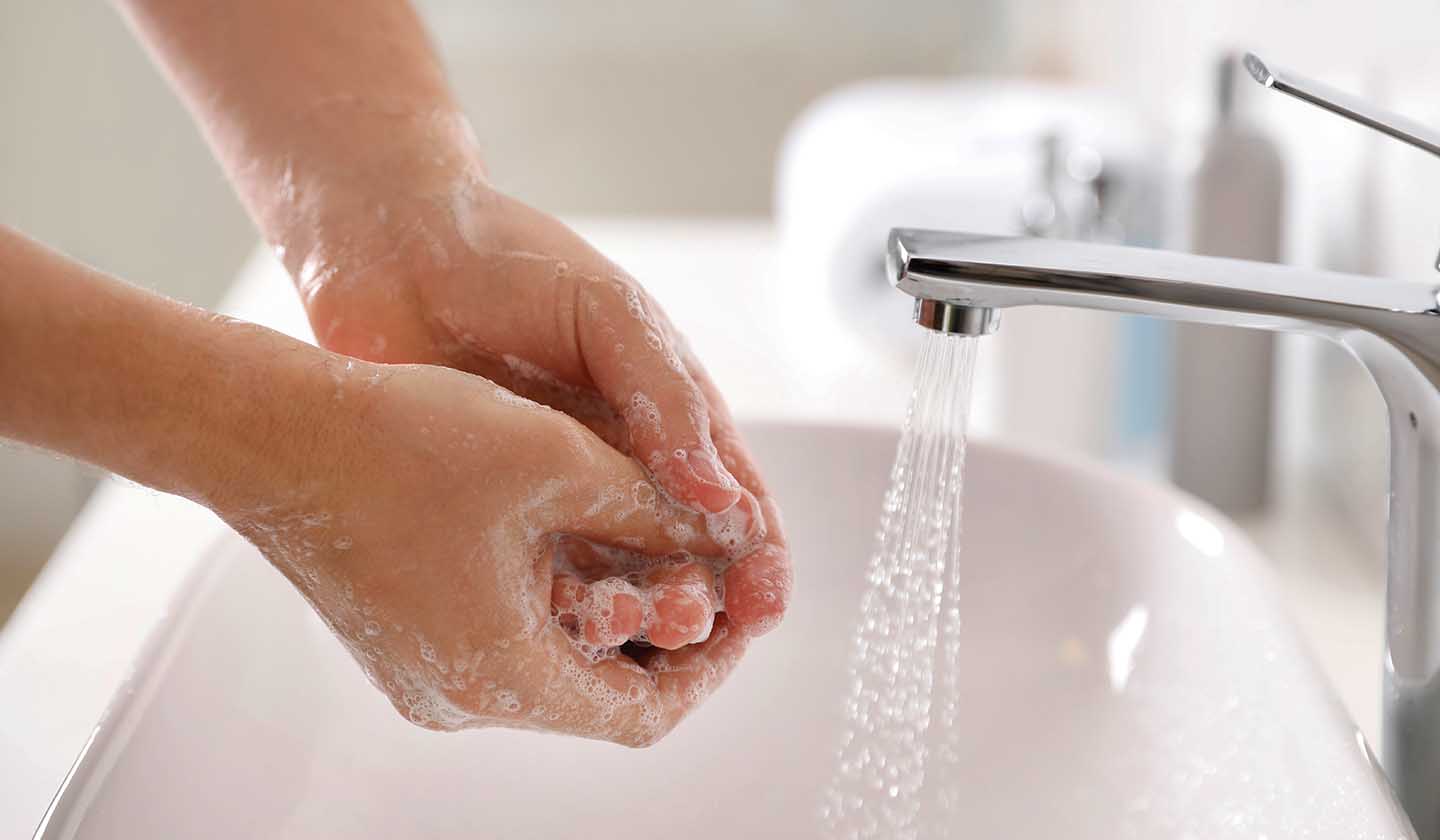Infections
Don't swallow dry, treat sore throat

If you ever feel pain in the throat area, usually described as sore throat, an inflammatory process of the oropharynx may occur, which means the tonsils (tonsillitis) or the pharynx (acute pharyngitis) are/is compromised.
Find out what distinguishes them and what you can do to relieve your sore throat.
Pharyngitis
Pharyngitis is an inflammation of the throat, more specifically the pharynx.
It is usually associated with cold, flu or mononucleosis, with the most common cause being a virus. However, it can also be caused by a bacterium.

What are the signs and symptoms?
This condition can cause discomfort and can be very painful. The most common symptoms are:
-
Sore throat;
-
Difficulty swallowing
-
High temperature (of 38 ºC or above);
-
Redness in the throat area;
-
General malaise.

How to treat pharyngitis?
If there are no complications pharyngitis resolves spontaneously within a few days. However, different medicinal products may be used to relieve symptoms and discomfort:
-
Throat lozenges / tablets (available with anaesthetic, anti-inflammatory and/or antibacterial agents);
-
Systemic analgesics (help to reduce sore throat, for example, paracetamol);
-
Spray or mouthwashes (may contain substances with analgesic and/or anti-inflammatory action).
Keep in mind that:
In case of frequent and prolonged sore throats, persistent and severe hoarseness, difficulty in breathing and swallowing, high fever or stiff neck, medical advice should be sought.
Tonsillitis
The tonsils act as filters in the back of your throat, preventing viruses and bacteria that cause infections from reaching your airways.
Tonsillitis is a contagious inflammation caused by viruses or bacteria. It is common among schoolchildren. It can also appear in adolescents and adults.

What are the signs and symptoms?
A few tonsillitis symptoms are:
-
Sore throat;
-
Difficulty swallowing;
-
High temperature (of 38 ºC or above);
-
Swollen and red tonsils;
-
Hoarseness;
-
Swelling of the neck ganglia;
-
Tonsils with white spots;
-
(Reflex) earache.
How to treat tonsillitis?
The treatment will depend on the cause, as well as on the signs and symptoms the patient shows. To relieve symptoms, the following medicinal products may be used:
-
Painkillers (for example: paracetamol);
-
Anti-inflammatory drugs (for example: ibuprofen.
-
Antipyretic drugs;
-
Antibiotics (only prescribed by the doctor in case of a bacterial infection).
Alert: Children under 18 years of age should not be given aspirin because it can cause Reye's syndrome).
Keep in mind that:
If you notice white spots on your tonsils and you feel any pain that prevents you from eating and drinking, or if the symptoms do not disappear after 4 days, you should see a doctor.
Tips to relieve the symptoms and discomfort of a sore throat:
In such conditions, the patient can:
-
Without swallowing, gargle with warm salty water (1 teaspoon of salt for each glass of water). This is not advisable for children;
-
Drink more fluids (preferably water at room temperature to hydrate the throat);
-
Drink lemon tea with honey (to soften the throat. Do not use honey if you suffer from diabetes);
-
Sucking on lozenges, preferably without sugar, with a soothing and calming action (these tablets stimulate the production of saliva, promoting throat hydration);
-
Avoid smoking or smoky environments (as these can irritate the respiratory system);
-
Try to speak in your tone of voice and avoid straining your throat.

How to prevent it...
The best way to prevent it is to have a good hygiene routine. To reduce the risk of these conditions, the following recommendations should be observed:
-
Wash your hands frequently with soap and water, especially before and after touching your nose or mouth;
-
When coughing or sneezing, use a tissue to cover your nose and mouth, and dispose of the tissue afterwards.
-
Avoid sharing food, drinks, and everyday tools with other people;
-
Avoid closed and/or smoky or polluted spaces;
-
Replace your toothbrush regularly.
Sources
iSaúde
Farmácia Distribuição Magazine
Também lhe poderá interessar
Mouth and teeth
Few pains are more debilitating than a severe toothache
Mouth and teeth






